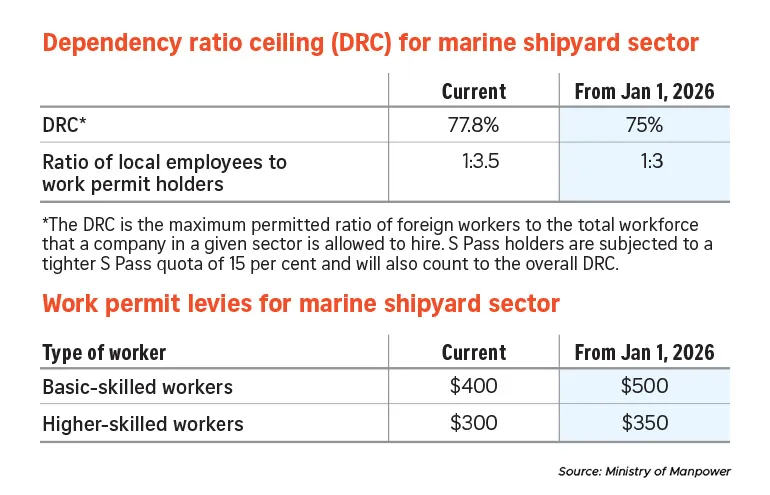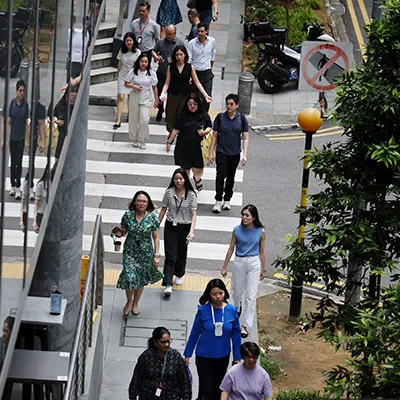Dr Tan spoke on the effectiveness of the Complementarity Assessment (COMPASS) framework as well.
COMPASS is a points-based framework that evaluates attributes of individual EP applicants and their prospective employer, in deciding to issue the pass.
All new EP applications made since 1 September 2023, have been evaluated through COMPASS, and the framework will be extended to renewals from 1 September 2024.
Under COMPASS, four “foundational” criteria are used to assess an application. They are an individual’s salary and qualifications, as well as the firm’s workforce diversity and support for local employment.
Bonus points are given to jobs where there is a lack of skilled workers specified on a Shortage Occupation List, and firms that partner the Government on ambitious innovation and internationalisation activities.
To pass the evaluation, which is designed to provide firms with greater clarity and certainty for manpower planning, the application needs to rack up 40 points.
Responding to labour MPs Patrick Tay (Pioneer) and Desmond Choo (Tampines GRC), Dr Tan said the Tripartite Alliance for Fair and Progressive Employment Practices (TAFEP) has been engaging and supporting companies that score poorly on firm-related attributes under COMPASS, to help them improve their workforce profile and adjust to the framework.
He said more than 440 firms have attended TAFEP’s workshops over the past year.
Firms with unfair hiring practices will still be taken to task under the Tripartite Guidelines on Fair Employment Practices, and under upcoming workplace fairness legislation in future, he added.
Dr Tan also responded to questions from Leader of the Opposition Pritam Singh and Mr Choo on the effectiveness of the Shortage Occupation List in easing skills shortages.
He noted that the list was designed to award bonus points on COMPASS to EP applicants filling acute occupational shortages in areas of strategic importance for the economy.
Roles on the list include artificial intelligence engineer, carbon trader, and alternative protein food application scientist, among others.
The proportion of EP holders in shortage occupations has increased since COMPASS was implemented, which Dr Tan said shows the list reflects real shortages industries face.
He added that based on preliminary data since COMPASS’ implementation in September 2023, 20 per cent of new EP holders working in roles on the list used the bonus points to pass COMPASS.
“Therefore, the Shortage Occupation List is very helpful in ensuring that COMPASS does not hinder business growth because of a shortage of skills locally.”
However, he added that some occupations continue to have small numbers of EP holders, such as those in the green economy and agri-tech, which are very nascent fields globally.
“While we partner agencies in recruiting them here, we are also contemporaneously investing in developing our local talents for these jobs.”
Dr Tan also provided an update on the Overseas Networks and Expertise (ONE) Pass, launched in January 2023 to draw top talent to Singapore.
Almost 4,200 ONE Pass applications had been approved as at 1 January 2024, he said. He added: “In an era where talent is scarce, businesses follow talent.”










